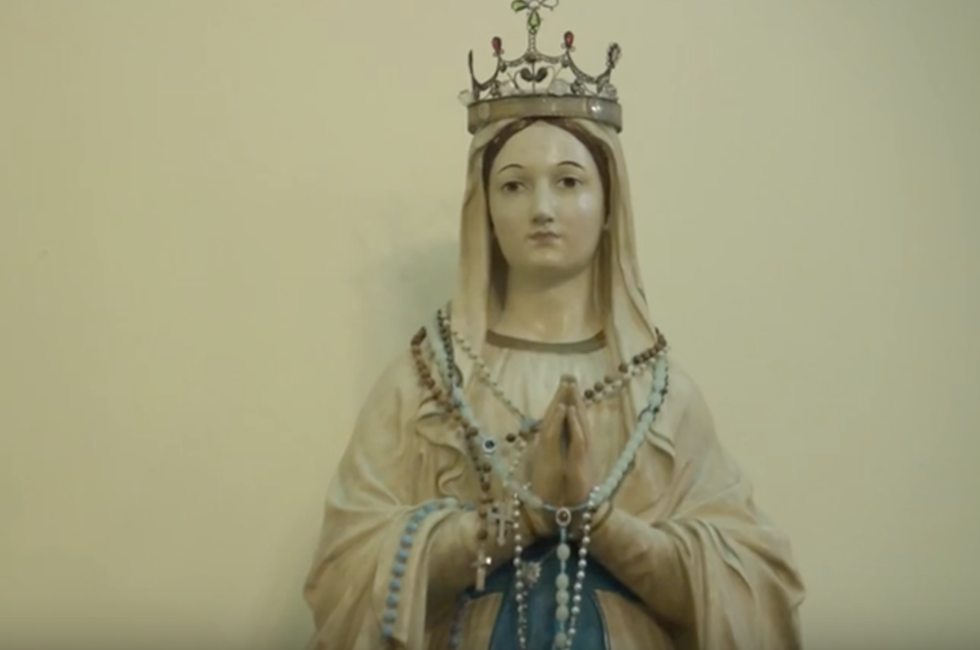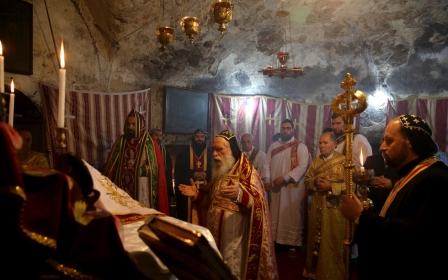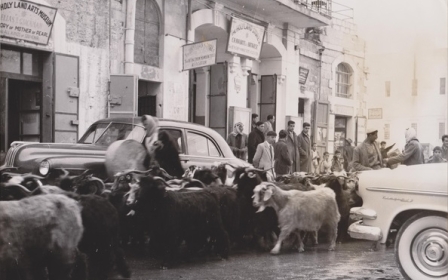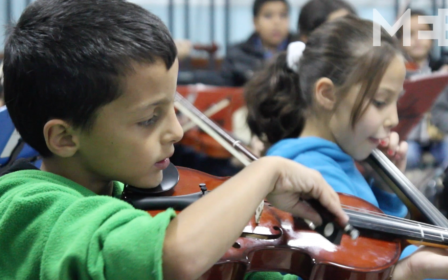Many Palestinian families are reunited for Easter

According to the Palestinian Authority, 850 permits were granted to Christians based in the Gaza Strip by the Israeli Coordination of Government Activities in the Territories so that they could travel to East Jerusalem and the West Bank for Easter celebrations.
Father Raed Abusahlia, general director of the Catholic humanitarian organisation Caritas Jerusalem, which has teams and projects based in Gaza, told Middle East Eye that he does not consider the permits to be "a favour". According to international law, he said, it should be much easier for Gazans to travel.
Article 13 of the Universal Declaration of Human Rights stipulates that everyone "has the right to freedom of movement," he said.
Others highlight that many families from the Gaza Strip, although they received permits, still were not able to travel, some because they do not have the money. According to the NGO B'Tselem, 80 percent of Gazan households live below the poverty line.
The rector of the Latin Patriarchate Jamal Khader said he was as worried that some members of families will have permits, but not everyone in each family. At a news event a week before the first Easter celebrations he noted: "If they don't have them for the whole family, they cannot come."
For those who were able to travel, it has been an opportunity for many things other than religion. Middle East Eye talked to Christians who took the opportunity to attend medical appointments outside the crowded hospitals and clinics of the Gaza Strip. Some went sightseeing in the West Bank. A scout leader from Gaza told MEE that his two daughters met their cousins from Ramallah for the first time.
Saeb Erekat, Palestine Liberation Organisation secretary-general, said: "Christians in Palestine are not a minority but an integral part of the Palestinian people. One day we will all mark our national and religious celebrations in Jerusalem, our capital".
Later in April, Eastern Orthodox Christians from Gaza will celebrate Easter with their families in East Jerusalem and in the West Bank, if they are able to obtain travel permits.
Middle East Eye propose une couverture et une analyse indépendantes et incomparables du Moyen-Orient, de l’Afrique du Nord et d’autres régions du monde. Pour en savoir plus sur la reprise de ce contenu et les frais qui s’appliquent, veuillez remplir ce formulaire [en anglais]. Pour en savoir plus sur MEE, cliquez ici [en anglais].




